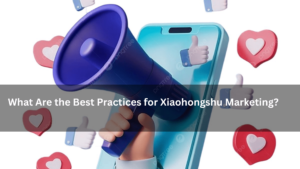What is Competitive Advantages of Influencer Marketing?
Competitive advantages of influencer marketing refers to the unique benefits that influencer marketing provides to businesses compared to other marketing methods. These advantages include the ability to reach a targeted audience, build trust and credibility, increase brand awareness and loyalty, generate high-quality content, and achieve a better return on investment. By leveraging the influence and reach of popular social media personalities, businesses can tap into a highly engaged and receptive audience that is more likely to be interested in their products or services. This can give them a competitive edge in the market and help them achieve their marketing goals more effectively.
In today’s digital world, influencer marketing has become a popular and effective way for small businesses to reach their target audience. By partnering with influencers, small businesses can leverage their social media following to increase brand awareness, improve customer trust, and ultimately drive sales. In this post, we’ll discuss the five competitive advantages of influencer marketing for small businesses.
1. Enhanced Brand Awareness
One of the most significant benefits of influencer marketing is increased brand awareness. By collaborating with influencers who have a strong social media presence, small businesses can reach a wider audience and introduce their brand to potential customers. According to a survey by Mediakix, 80% of marketers agree that influencer marketing can boost brand awareness.
2. Improved Customer Trust
Influencer marketing can also improve customer trust. Consumers are more likely to trust the recommendations of influencers they follow than traditional advertising. In fact, a survey by MuseFind found that 92% of consumers trust influencers more than traditional advertising. By partnering with influencers, small businesses can gain the trust of their target audience and establish credibility.
3. Cost-Effective Marketing
Influencer marketing can be a cost-effective marketing strategy for small businesses. Compared to traditional advertising methods, influencer marketing can provide a higher ROI. According to a study by Tomoson, businesses earn an average of $6.50 for every $1 spent on influencer marketing.
4. Targeted Customers
Influencer marketing allows small businesses to target specific audiences. By partnering with niche influencers, small businesses can reach their target audience and increase the chances of converting followers into customers. Micro-influencers, for example, have a smaller following but can provide a more targeted and engaged audience.
5. Drive Sales
Finally, influencer marketing can drive conversions and sales for small businesses. According to a study by Linqia, 39% of marketers said they saw increased sales from influencer marketing. By partnering with influencers and providing exclusive discounts or promotions, small businesses can incentivize their audience to make a purchase.
Conclusion
In conclusion, influencer marketing provides several competitive advantages for small businesses. It can increase brand awareness, improve customer trust, be cost-effective, allow for targeted marketing, and drive conversions and sales. By incorporating influencer marketing into their marketing strategy, small businesses can reach their target audience and ultimately grow their business.







